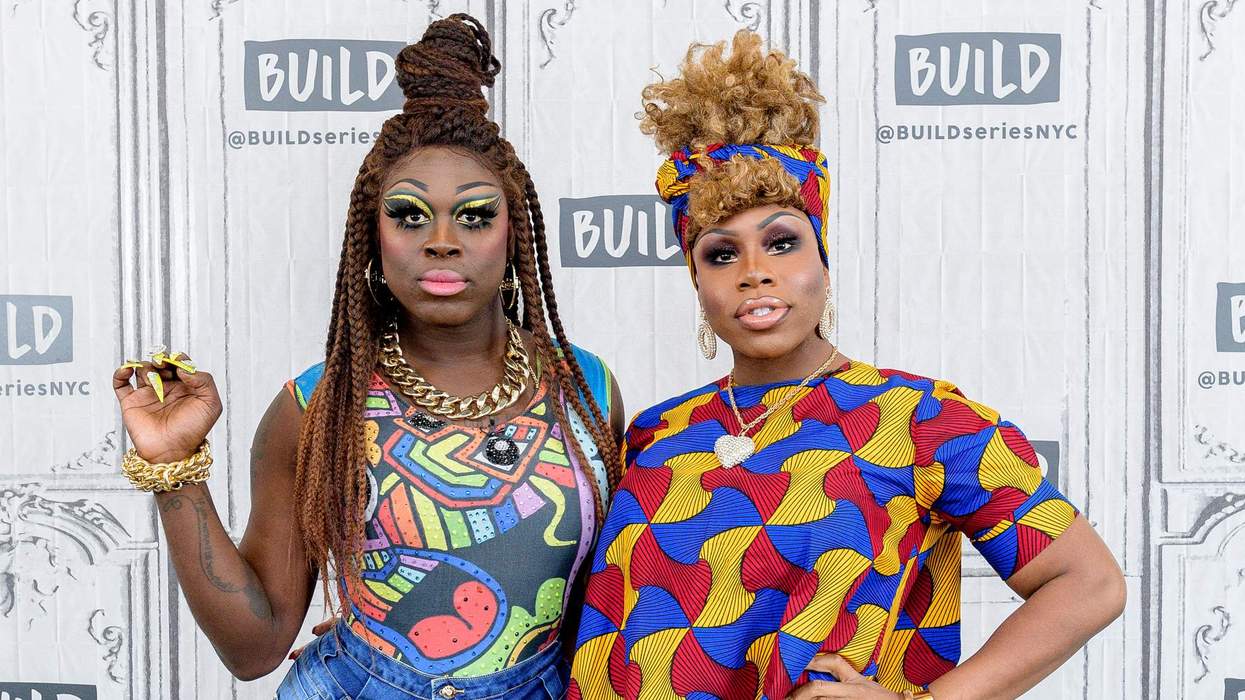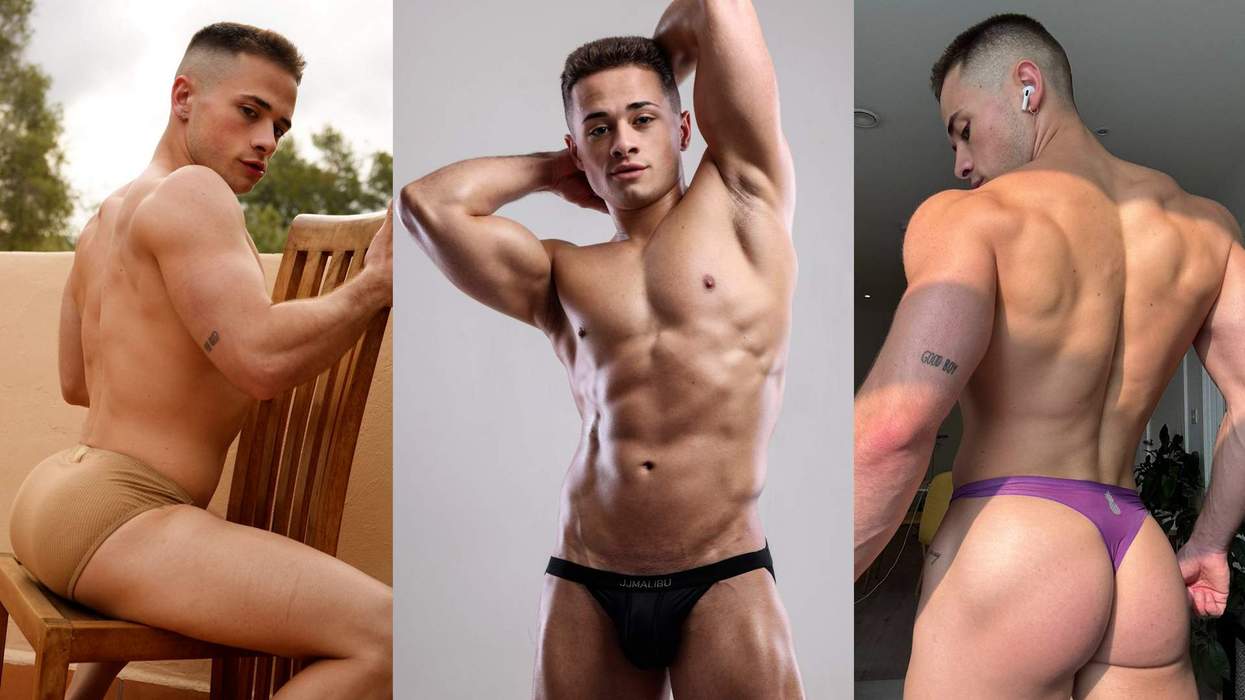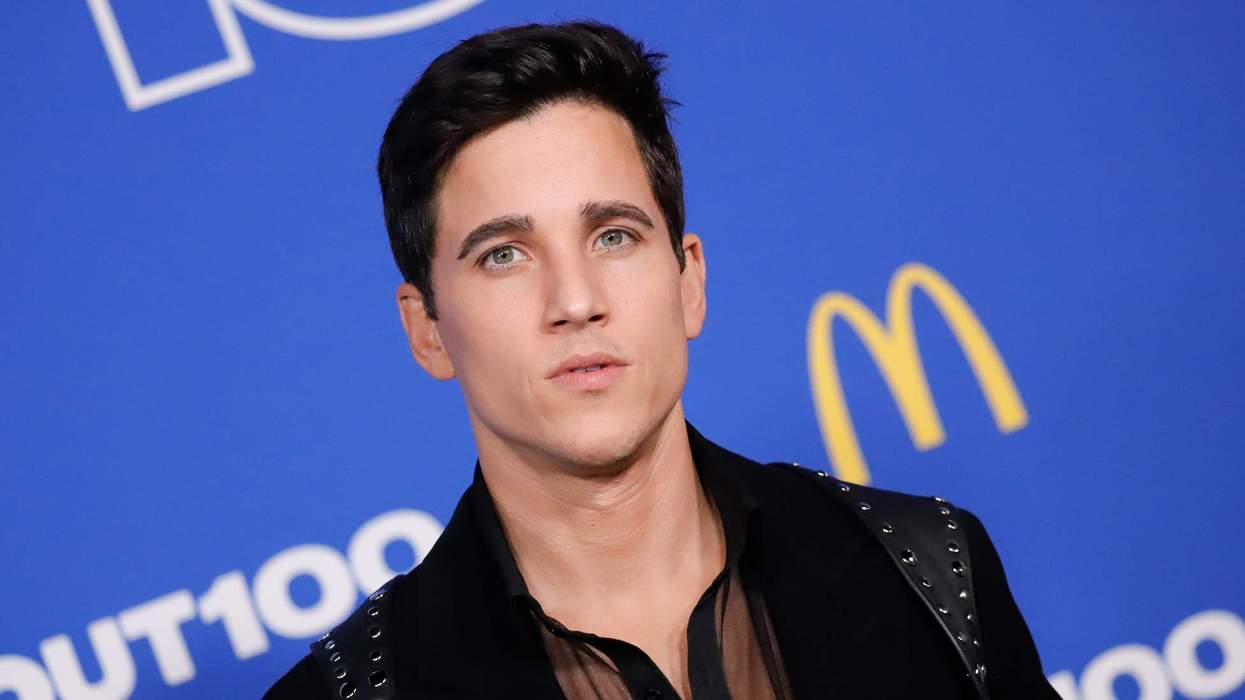While Big D might not have taken home the title of King of Drag, he is, without a doubt, the show’s clown prince.
This Bellingham, Washington-based king quickly became a fan favorite when he flounced into the Man Cave in character as a foppish dandy. Then, despite being picked last when the cast broke into two boy band groups, he blew the audience, his castmates, and the judges — who included director Paul Feig, who said he was “the complete package” — away. It was an outcome that Big D, who didn’t even think they would make it through the audition process, didn’t see coming.
“I was convinced I wasn't going to get on,” he recalls to PRIDE. “I had to have several of my close friends hard pep talk me into applying. It was a lot of work to apply, and I was just like, I'll never make it. Why am I even bothering?”
But the chance of working with King of Drag host Murray Hill, the king who inspired him to get into drag in the first place, was just too good an opportunity for him to pass up. Much to Big D’s surprise, even applying gave him his first boost of confidence. “The process of applying made me feel like, okay, you know, I'm at least somebody,” Big D explains. “It's okay for me to apply. I'm not an embarrassment to my application.”
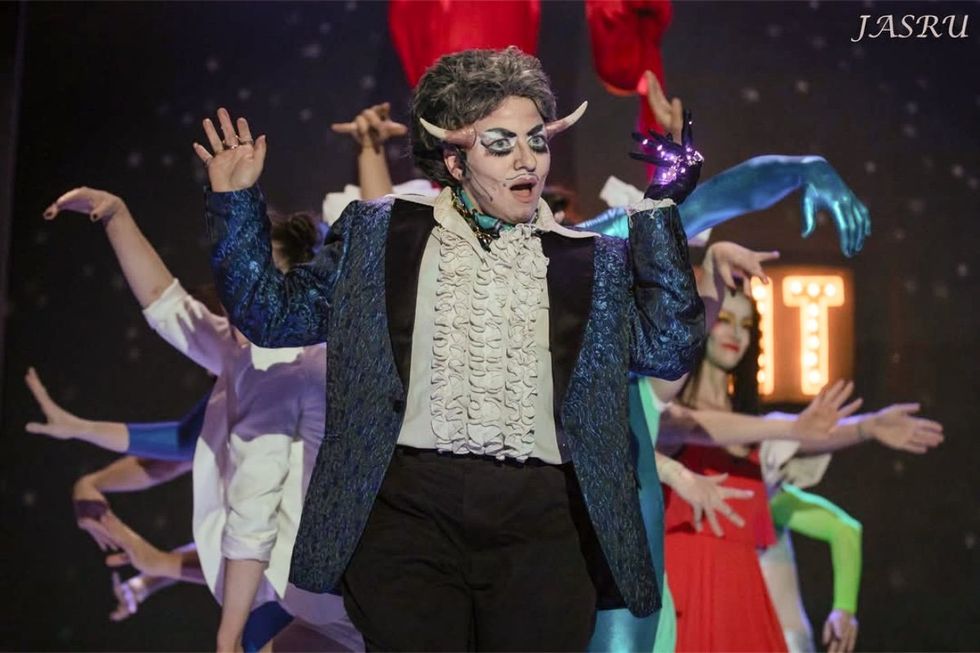
Courtesy of Big D
It was a cycle of imposter syndrome and affirmation that repeated itself throughout the entire casting experience. “I got called back, and I was shocked and amazed, but I still didn't think it would go anywhere. I did the callback, and it went really well, and I felt really good about it, but I still was like, oh, I probably didn't make it. And then, they made me wait a whole week, and I was at that point convinced I hadn't gotten it,” he recounts. “Then I got an email, and I was like, ‘Oh well, they sent me an email. It's probably a rejection,’ and then it's like, ‘we're thrilled and honored.’ And I was like, ‘oh, okay, oh’, and I still had to take my daughter up for a nap at that moment. I was like, ‘okay, girl, got your milk. Let's go upstairs.”
His fear then was that he wouldn't fit in with his fellow kings, most of whom cut their teeth doing club gigs and lip-synching to screaming crowds. “I haven't really put myself in the ring, in any way, with any other drag artists. Because I'm kind of in this clown and theater world,” he explains. “I just didn’t see myself in the same kind of category.”
But that all changed when he walked into the Man Cave. “I'm, like, you know what? I'm awesome,” he recalls thinking. “I felt like, okay, I must have something that they want, right?”
He couldn’t have been more correct. Big D’s brand of clownery not only brought an enormous amount of levity to the already positivity-filled show but had a big impact on his competitors. “My mind was just blown open,” Alexander the Great recalls to PRIDE of watching Big D’s performance on the second episode, in which he impersonated Sylvester Stallone attempting to fold a fitted sheet. “Buck Wylde is sitting next to me, and we're watching [Big D] do this, like, as we're filming, and I'm laughing so hard. I'm like, almost like, peeing myself,” he says with a laugh. “Never in a million years would I have thought of that.”
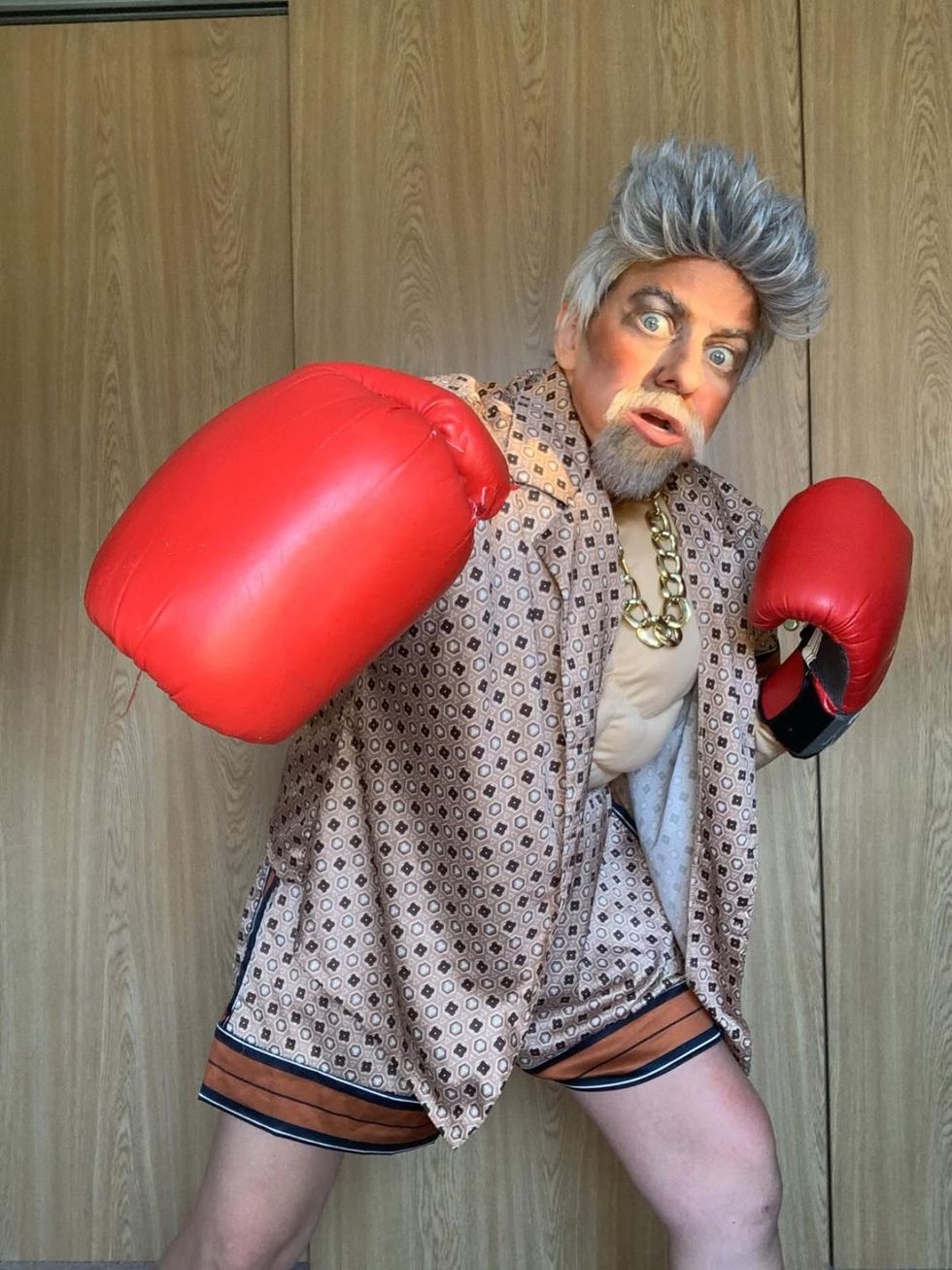
Courtesy of Big D
That’s not to mention the moral support he gave his brothers when they found themselves struggling. Tuna Melt recalls filming the first episode, during which he was struggling, both mentally and physically, at the end of a long day and a performance he was unhappy with. “Big D was next to me backstage, and was just looking at me and just started talking to me,” Tuna tells PRIDE. “And I was like, you know what? This is why I did the show, so I can get to know Big D... and I'm going to choose to be present with my castmates."
Today, Big D sees things more clearly and understands why he was in the room with his fellow kings. “I wish I could have told [this to] the me who was convinced I wasn't going to get on [the show]. First of all, the world that calls itself the drag world is extremely available and inclusive of a lot of different definitions of what that is,” he shares, adding, “The art form is expansive and expanding, and there's room. If you're a serious artist who is playing with gender, there's probably a place for you in this world.”
While he's proud to be making drag king history as part of the first cast and to be a part of the first season of the groundbreaking series, he’s not letting the pressure get to him. “One of the benefits of being a mid-career artist, you know, is that you give less and less fucks,” he says. “This is certainly my first time being on TV, but it's not my first rodeo as a performer. I just have to do the damn thing.”
Still, the experience proved revelatory for Big D, who feels changed by his time on the show. For one, it has pushed back on the impostor syndrome that he says often plagues AFAB performers. “I've been really serious about my art and really playing with gender for a really long time. And I don't know why I didn't feel legitimate then, but I do now,” he admits.
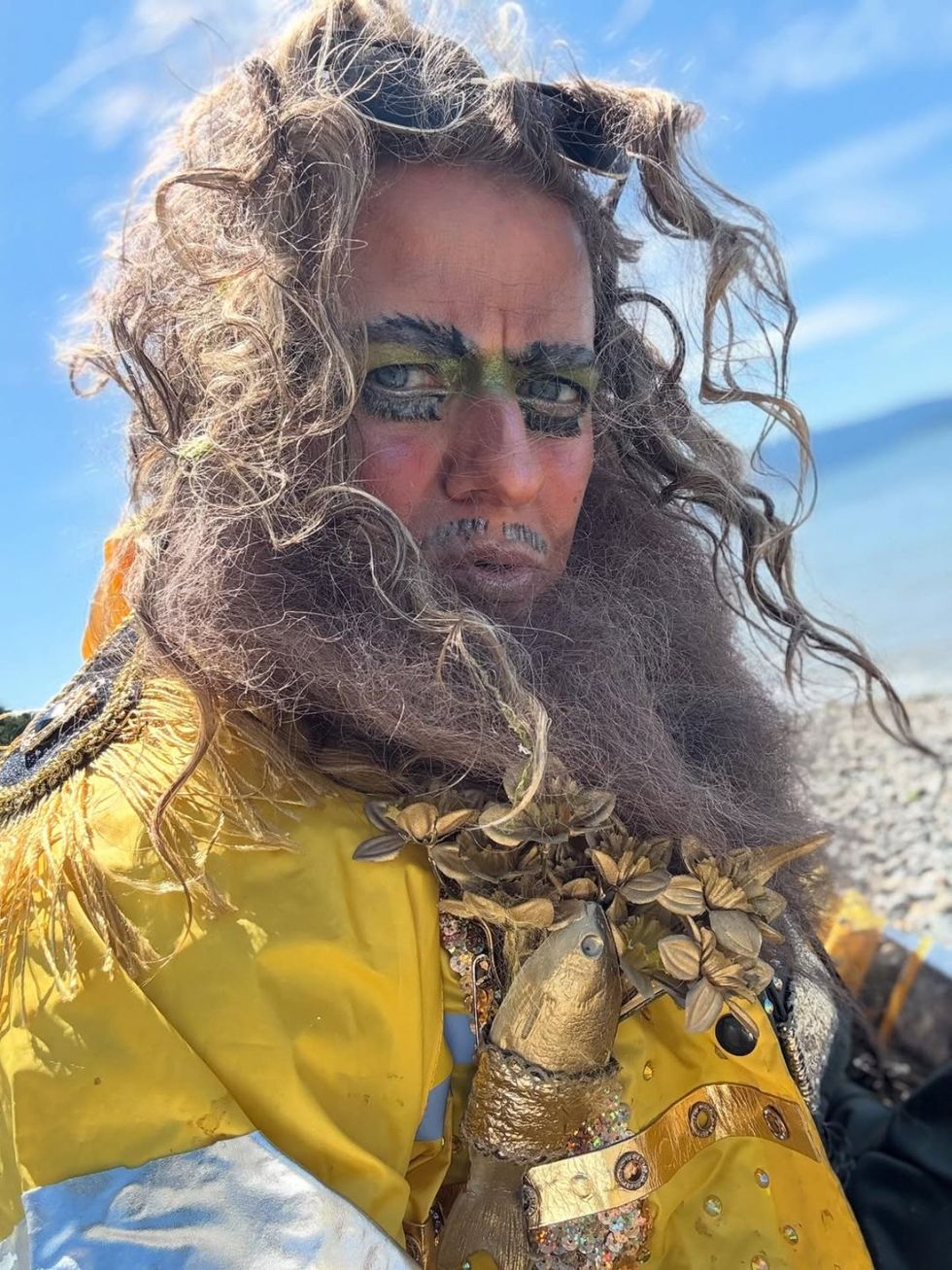
Courtesy of Big D
There’s a bit of delicious irony here considering that Big D explains his drag is, in part, an exploration of “mediocre masculinity.”
“My shitty makeup is a testament to my masculinity. I'm gonna put on shitty ass makeup and tell everyone I look fabulous because I'm a fucking mediocre white man. Get into it!” he jokes.“That's what it is to be a mediocre white man, to say, like, I am enough, even though I'm not enough.”
Kinging is also a space that’s given Big D the freedom to embrace himself just as he is, including being a self-professed menopausal king, and allows more room for performers of various ages, because, well, patriarchy. “In some ways, [we have] all of the benefits of the patriarchy we can use and apply in terms of [the] drag kingdom,” he explains. “[Like] the idea of taking up more space than we deserve.”
“This idea [of men] getting better as they age. I'm not even climaxing yet as a drag king. There's still further to go. I don't feel too old. I think that that is one way in which drag queendom is harder, because I think society is harder on women as they age, right?” he says, “So it's going to be harder on drag queens. But it could be very gentle on drag kings. Very nice for us as we get older, right? We could just get sexier and sexier. So I'm looking forward to that.”
However, he’s quick to add that he’s ready for kinging to break free of being contextualized through the lens of queens. “I love Drag Race, but that is not how I want to be talked about or defined,” he says.
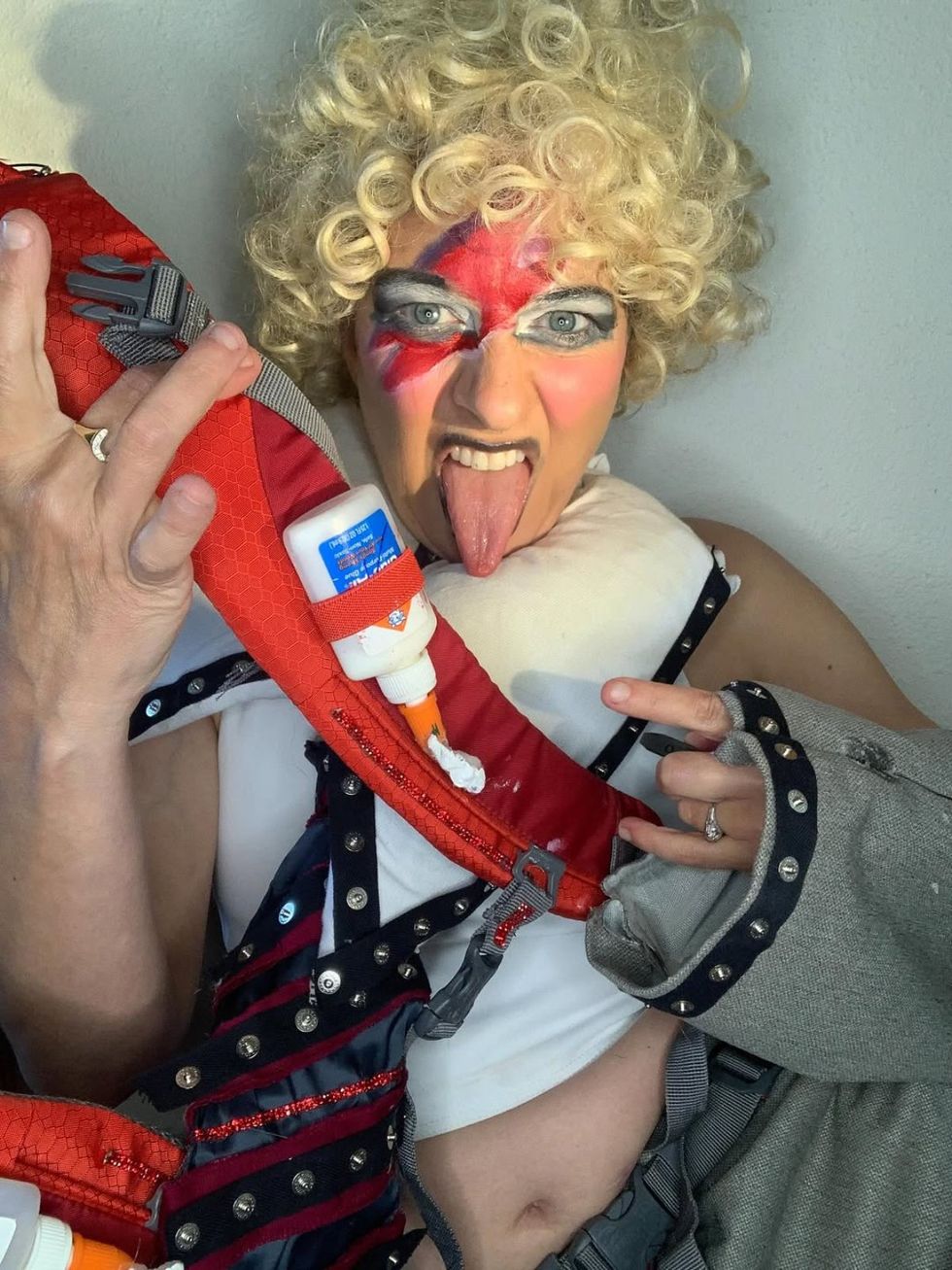
Courtesy of Big D
In fact, he has his own uniquely Big D way of describing what he’s doing with his drag. “Some really famous drag kings, like Adam All or Landon [Cider], are really interested in rebranding masculinity, or taking away the toxic and making it like a new kind of masculinity,” he says, adding he has a different approach. “I'm riding the coattails of toxic masculinity. I'm right behind the toxic masculinity, eating its poop and farting out gold.”
He laughs at his own, ahem, evocative description and adds, “I'm a clown, I'm an idiot. I'm here to be laughed at, and my job is to take toxic masculinity and make it funny.”
Big D also hopes that his presence on the show helps to educate the audience about what clowning means, that it’s not just about circus tents and oversized shoes, but rather a much deeper way to access and exorcise deep trauma and personal struggles by turning them into comedy.
“The way I define clowning is, there's a deep connection to the audience,” he begins. “It's about finding comedy from who I am, from my strengths and, more than that, my weaknesses, my vulnerabilities. So it's like taking the stuff about me that's authentic, and maybe I'm not proud of some of it, but like, that's who I am.”
For example, the character Big D embodied as he walked into the Man Cave on the first day, unpacks a side of himself that he describes as “pompous and artistic and flowery and just so stupid.”
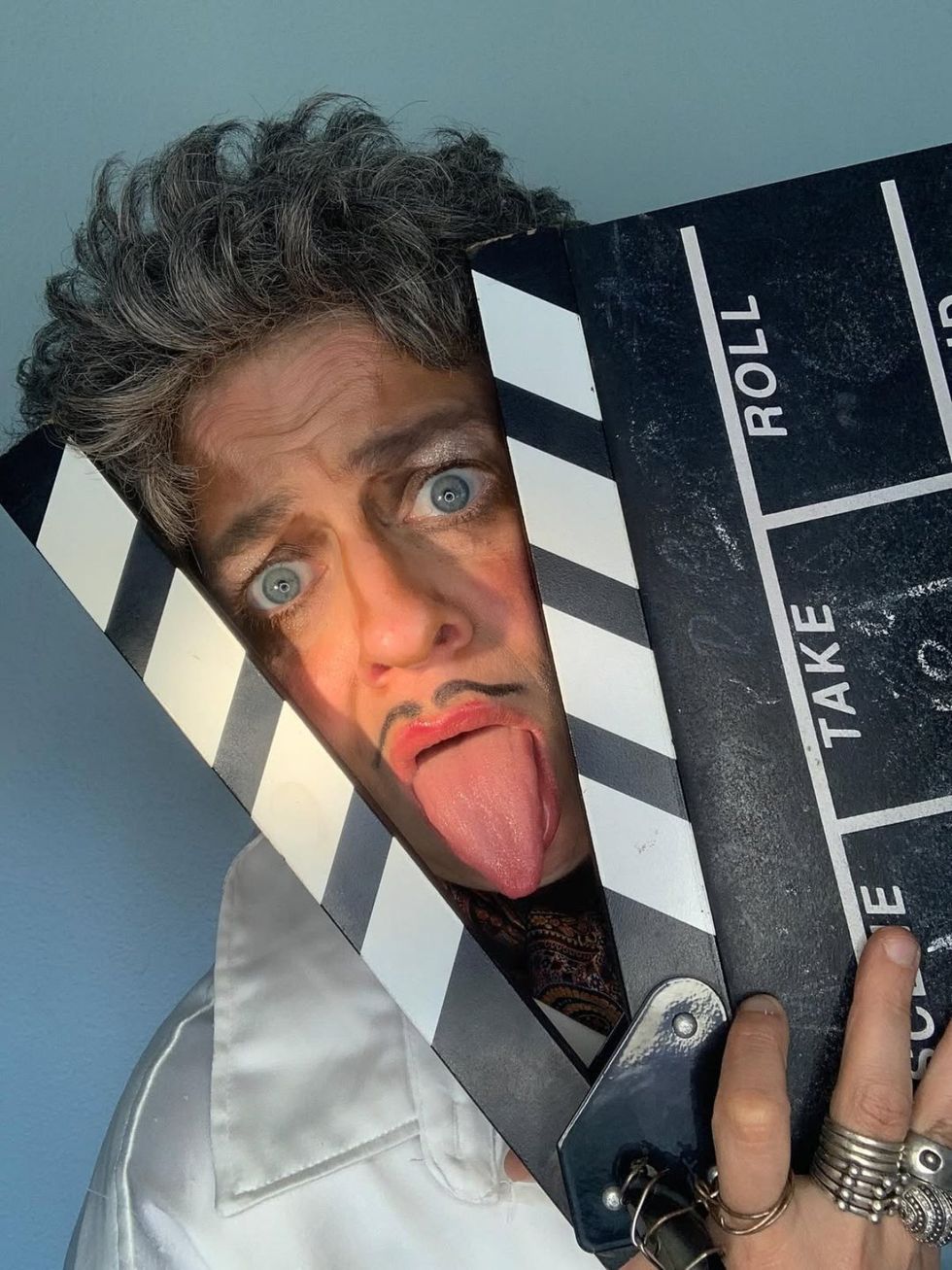
Courtesy of Big D
The way he approaches characters is to find the places within himself where he feels the most shame. “Gender stuff was one of my top things that I was ashamed of. So, I started doing characters that were masculine impersonators because that's what I like. That was something that I was like, ‘Oh, God, I hate this about myself.’ [Then] ‘okay, I'm going to clown through it. I'm going to put it out there in the world so that people can laugh at it. And through that, I'm going to feel some healing.’”
He, happily, has found some, and it's been a journey that continued on King of Drag. “[When] I started, [I thought] ‘I’m a garbage King. I have nothing. I have no looks,’ whatever. And then I started to be like, ‘No, actually, I do have looks. I do care about details, I do care about looks.” It's not perfection, but there's something. And I leaned in,” he says, adding that this most recent episode, which was a design challenge, was eye-opening. “I've always thought of myself as punk, but it really helped me clarify that [and] be like, ‘Yeah, that's what I'm doing.’”
It also marked his first public lip-sync. “My brothers on the show, they come from this nightclub scene where it's like, you walk out on stage and people are screaming and throwing money at you, right?” he explains. “I'm used to walking out on stage to eight senior citizens in fucking Edmonton, Alberta, just like, sitting there being like, is this anything? It's a very different vibe.”
This experience awakened something in Big D, who is now seeking ways to further marry his clowning with lip-syncing — although he remains thoughtful about how he will go about it. “I'm a parent, and so I have to be tactical about when I travel,” he points out.
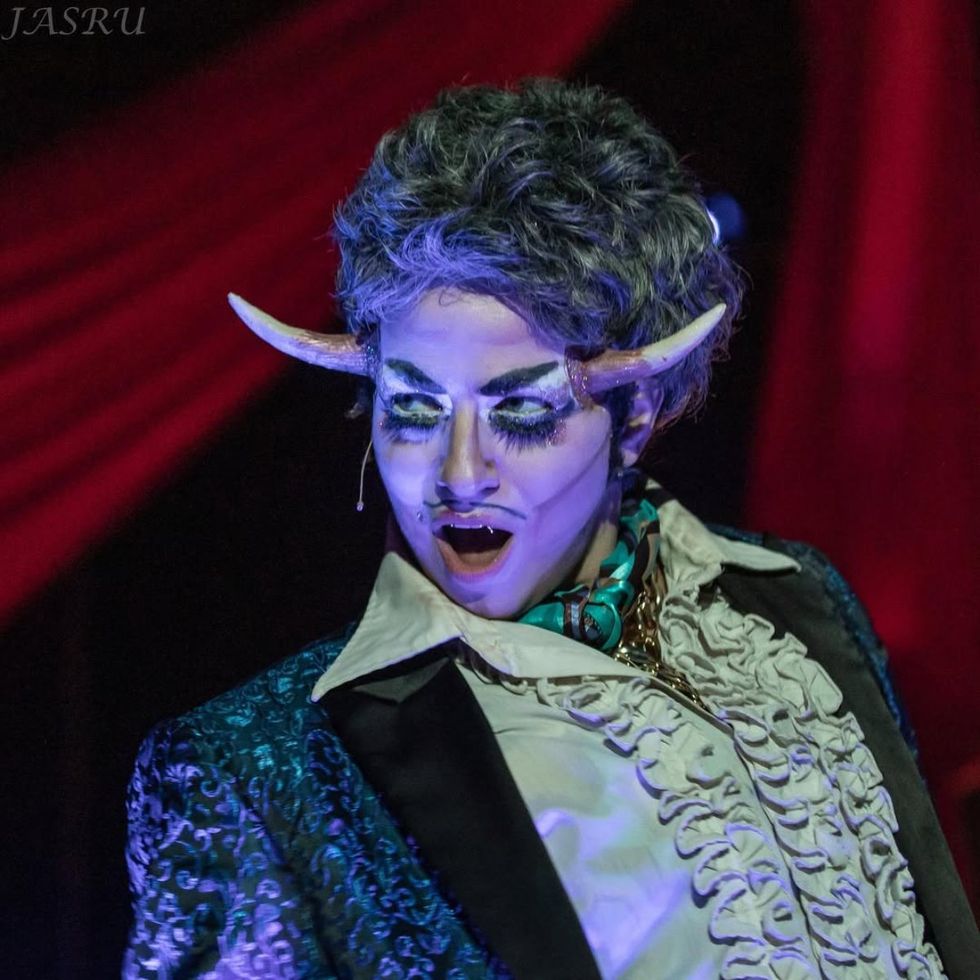
Courtesy of Big D
Also, teaching remains his truest passion. “It's really important for me to spread what I do through teaching and helping other people make work — that's just as important to me as performing. I love performing, but I think a lot of performers teach to support the performing habit. And I would say that I perform to support my teaching habit,” he admits. It’s clear that clowning changed his life for the better, and his mission is to make sure more people have access to that same experience.
He’s also open to doing more TV, so long as it's on his terms. “One of the reasons why I look up to Murray [Hill] so much is that he's been able to make this movement into TV and film in such an authentic and true-to-himself way. I would definitely love that,” he says.
But for now, Big D’s just reveling in an experience that left him feeling both “supported and featured,” and he dreams of a time when more kings feel the same way. “I wish that for all artists who work hard, you know, and have something to share,” he says. “It's so hard for artists to feel that kind of support, and it is game-changing.”
He also has a message for his fans. “I want people reading [this] to go [and] reach out to some artist who matters, who's maybe off the radar, someone who's not getting a PRIDE article written about them. And just say, ‘You fucking matter to me. Your work matters.’ Because sometimes we really need that as artists,” he concludes.


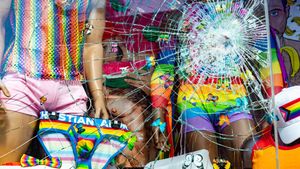

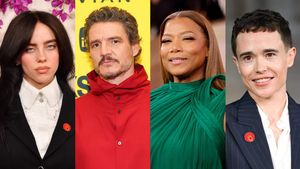

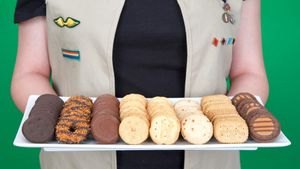
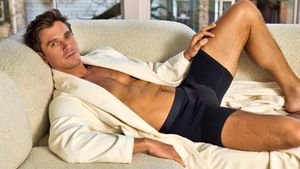


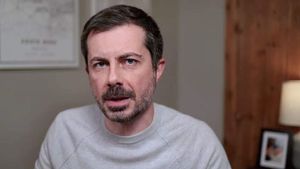


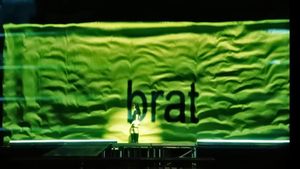

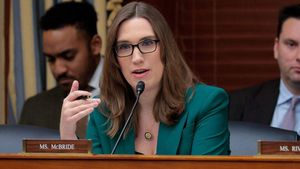
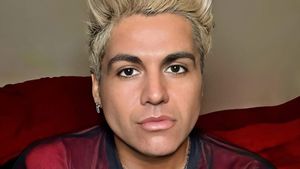
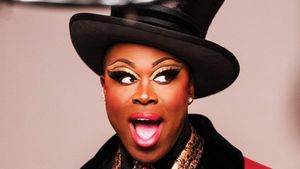






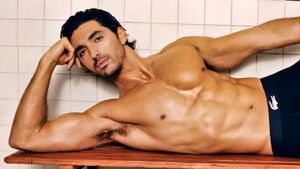
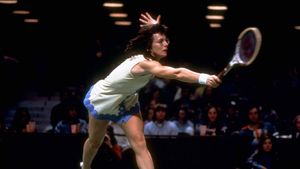



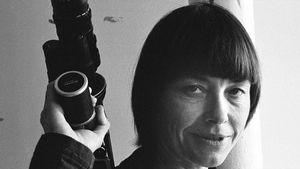


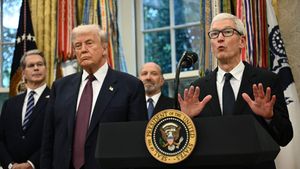


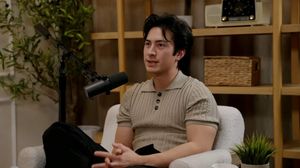

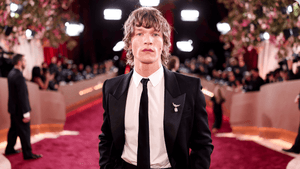
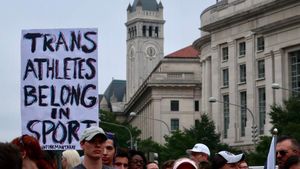
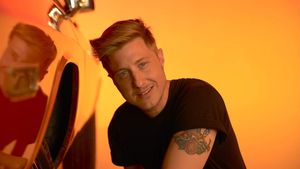
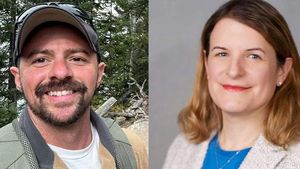



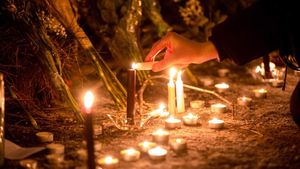

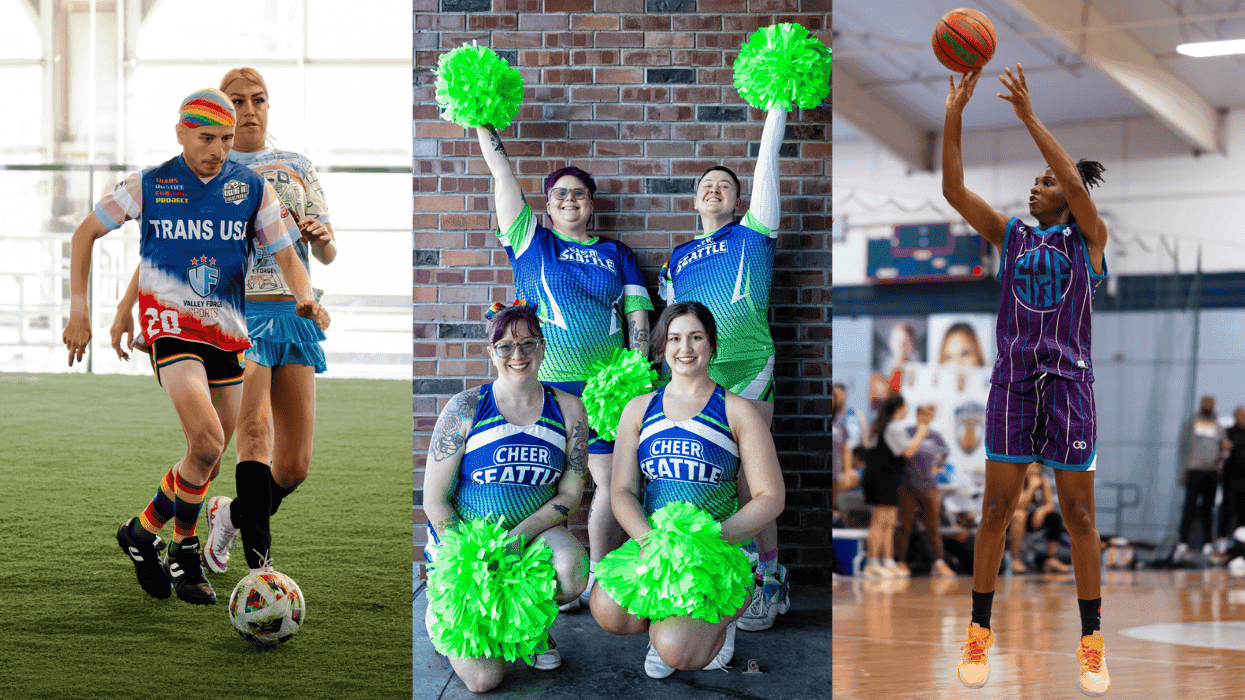
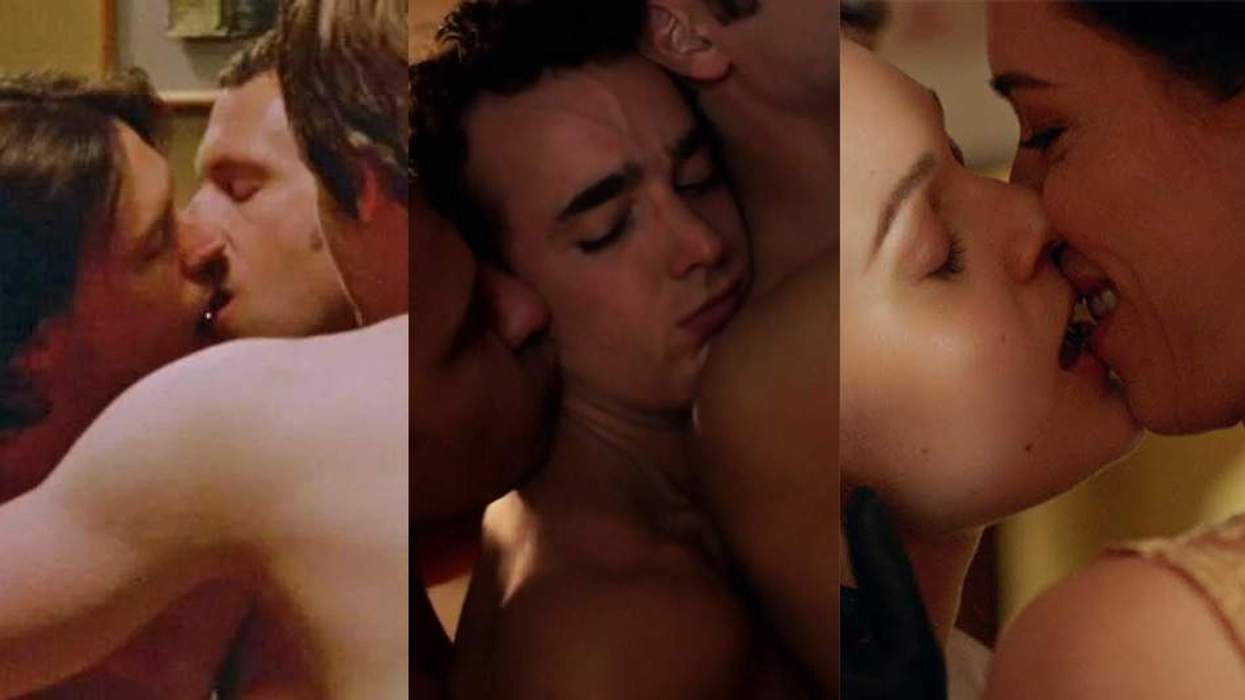
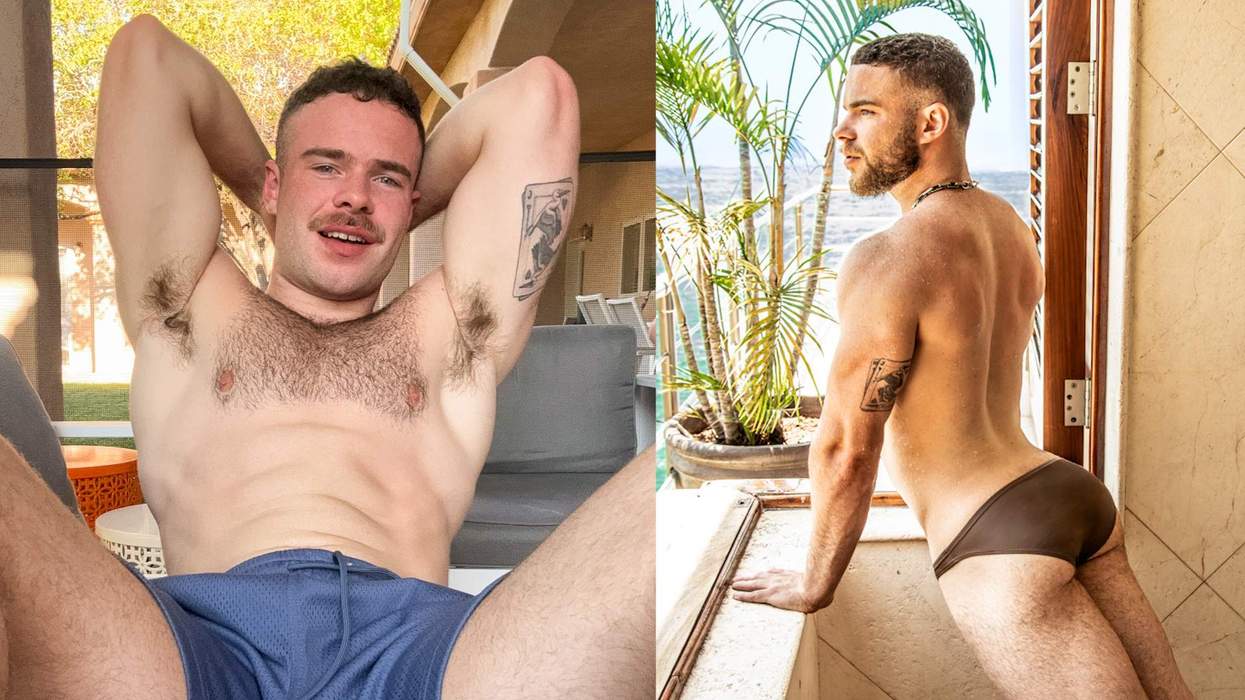
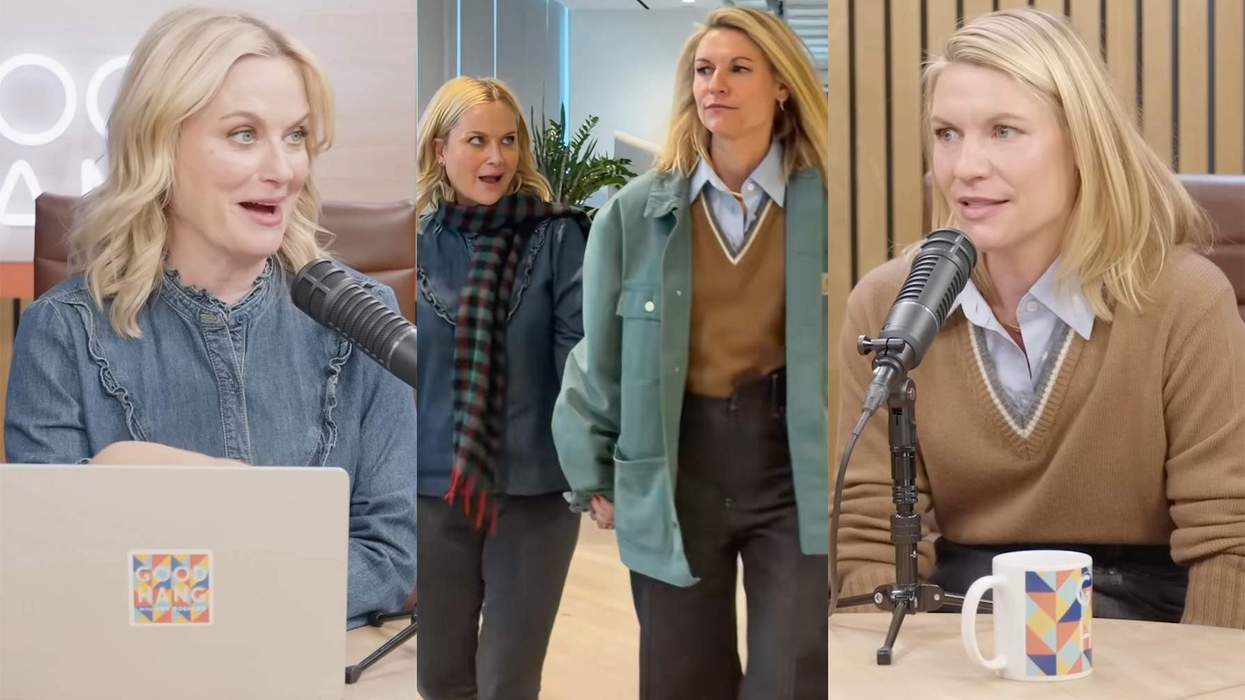






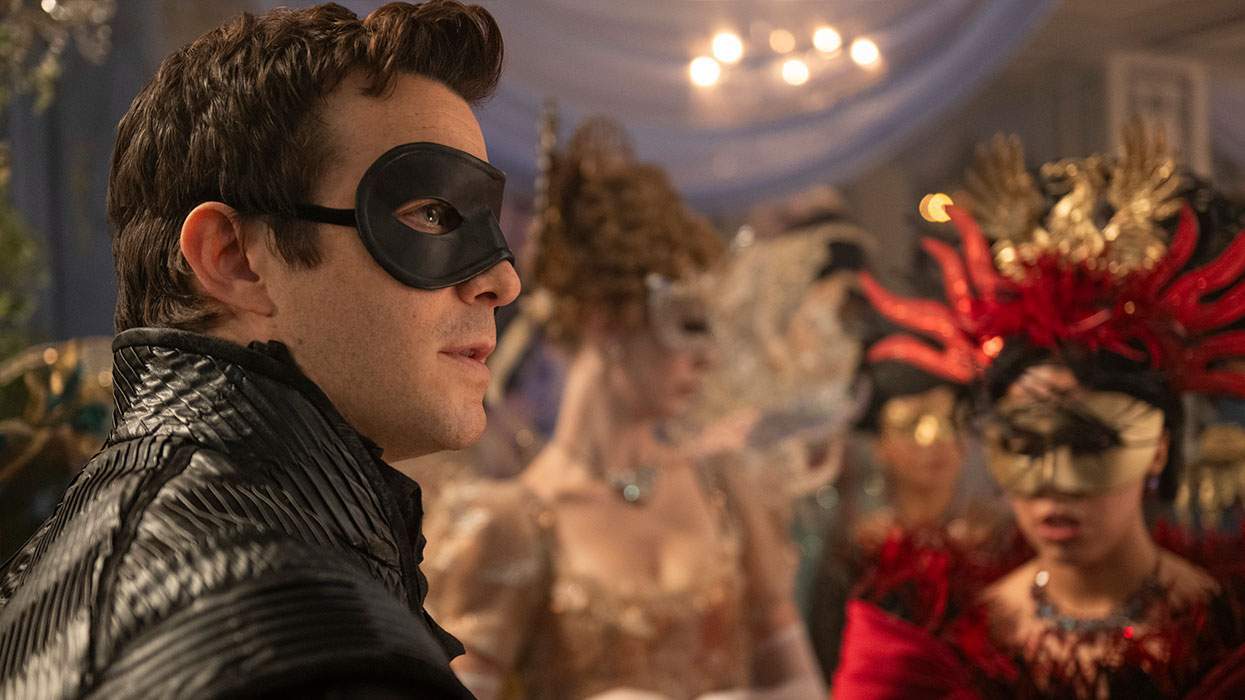

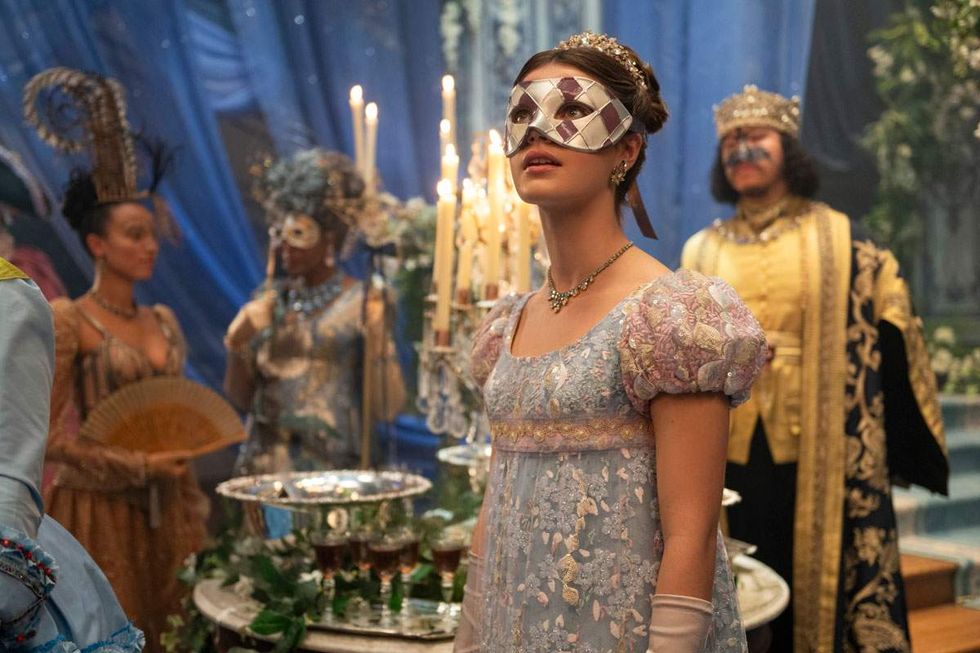 Hannah Dodd as Francesca BridgertonCourtesy Netflix
Hannah Dodd as Francesca BridgertonCourtesy Netflix
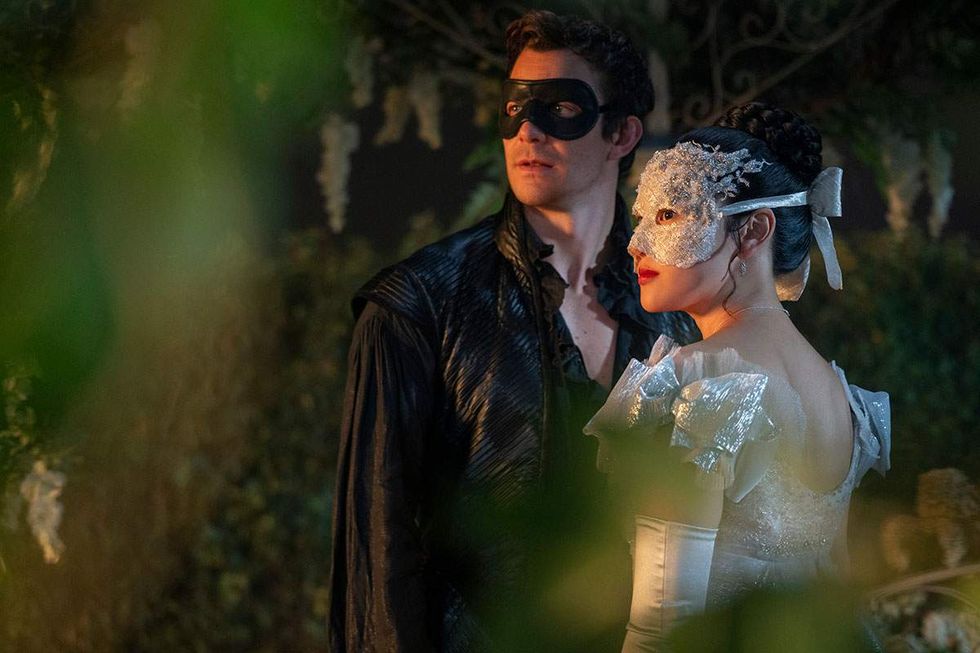 Benedict (Luke Thompson) and Sophie (Yerin Ha) in Bridgerton season 4.Courtesy Netflix
Benedict (Luke Thompson) and Sophie (Yerin Ha) in Bridgerton season 4.Courtesy Netflix
